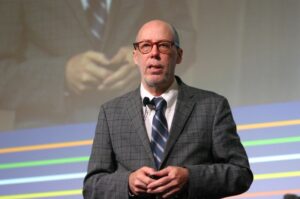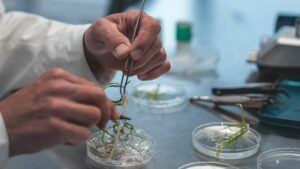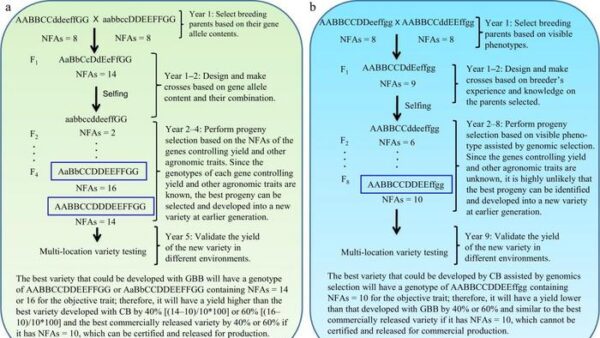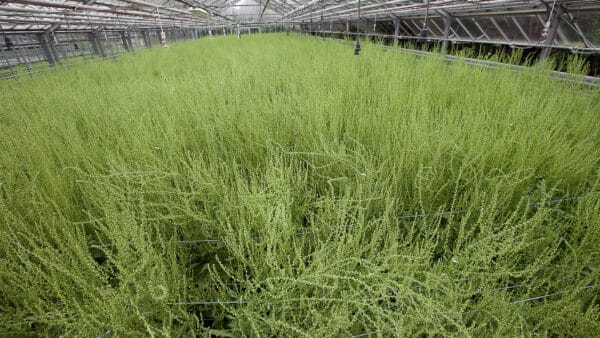If Canadian ag is to succeed on the world stage, we need to ensure red tape doesn’t get in the way. It was a major theme of the 2022 GrowCanada Conference.
In a world rocked by political conflict, economic uncertainty and rapidly progressing technological innovation, the bioeconomy is one of many sectors coming to the rescue — but restrictive regulation threatens to hamper it if the ag sector doesn’t work to ensure plant scientists can innovate.
That was one message delivered at the 2022 GrowCanada Conference in Ottawa, Ont., by Andrew Busch, futurist and economist based in the United States.
Busch was the first chief market intelligence officer for the U.S. government at the Commodity Futures Trading Commission. According to Busch, Canada’s seed sector is one of many industries poised to play a major role in the economy of the future — even more so than our own industry may sometimes think. He used the protein economy as a major example.
“Everybody’s going to laugh that I put protein up here on the screen, because it really hasn’t taken off the way most people thought it would. But I just want to tell you that I have a crystal ball, and it’s called venture capital money. There’s a company in Singapore that just raised $100 million for what I would call faux lobster. All sorts of money is being dumped into this. Companies in this space have really struggled, no doubt about it,” he said.
“These products are going to get a lot better; the more time they spend time doing research and using AI and massive amounts of data, they’re going to get better and better at growing this stuff. As a matter of fact, in the Netherlands right now, laboratory-grown foods are actually the same price as regular meat.”
Indeed, while challenges always exist in food systems of any kind, the global food system is working wonders to feed the world. While it’s the challenges that make headlines, things are not bad and getting worse. In fact, they’re good and getting better — just not fast enough.
As an influential expert and director of global food and water policy at The Nature Conservancy (Global) and Nature United (Canada), Jack Bobo highlighted examples of policies and programs that are making positive sustainability impacts.
Still, innovation must be allowed to progress unimpeded, but doing so is challenge the world over due to restrictive regulation, he said.
“For me, the greatest tragedy is not that we get to 2050 and we’ve ruined everything. The biggest tragedy is that we get there and we had the tools to solve these problems, but we didn’t use them. I tell people I’m a science optimist; I’m convinced that science and technology and innovation can get us there. But I’m a regulatory pessimist; I’m not convinced that we’ll be allowed to use [those tools],” Bobo said.

Changing Business Landscape
As our industry attempts to break down regulatory barriers, it also needs to plan for the future and recognize that opportunities that seem good now, may not be so down the road.
As electric vehicles slowly take over, there will be reduced demand for fossil fuels and even biodiesel.
“You’re going to see a move away from biodiesel, even though there are subsidies for that. [Those involved in biodiesel] might want to think about this.”
Foundational AI, blockchain and co-bots are just a few of the extraordinary tools being leveraged right now to help businesses overcome, adapt and thrive, he said.
“With the advent of CRISPR, with the advent of cloud computing, with the advent of data and AI, things are happening so fast, it’s unbelievable. We have moved from thinking about living organisms as a discovery project into looking at living organisms as an engineering project. That’s a big shift.”
He gave the example of research conducted by the United States Department of Agriculture, reported in November, where researchers were able to use a virus to battle wheat scab. They discovered a strain of a fungal virus, or mycovirus, that disables the scab fungus’s vomitoxin-making machinery.
“Having worked at a regulator, their default position is to do nothing. I don’t want to insult anybody from the Canadian government if you’re hearing this, but the safest position for regulators to do nothing,” he said.
“This kills innovation. Progress is going to occur, and it’s going to happen way faster than regulators can catch up, so we have to strike a balance. Companies that are selling you these technologies will be working hard to make sure that they’re [safe].”













